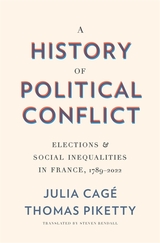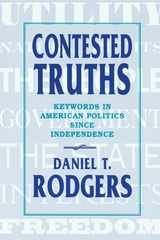
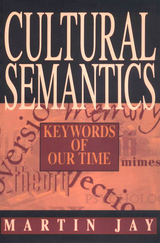
By looking closely at what "words do and perform," Jay makes us aware of the extent to which the language we use mediates and shapes our experience. By helping to distance us from much that we now take for granted, he makes it difficult for us to remain comfortably certain about what we think we know.
Elegantly written and richly insightful, this is a work of cultural criticism and intellectual analysis of the first order.

From A to investigates the relationship between media and culture by articulating questions regarding the role of markup. How do the codes of HTML, CSS, PHP, and other markup languages affect the Web's everyday uses? How do these languages shape the Web's communicative functions? This novel inquiry positions markup as the basis of our cultural, rhetorical, and communicative understanding of the Web.
Contributors: Sarah J. Arroyo, CSU Long Beach; Jennifer L. Bay, Purdue U; Helen J. Burgess, U of Maryland, Baltimore County; Michelle Glaros, Centenary College of Louisiana; Matthew K. Gold, NYCC of Technology; Cynthia Haynes, Clemson U; Rudy McDaniel, U of Central Florida; Colleen A. Reilly, UNC, Wilmington; Thomas Rickert, Purdue U; Brendan Riley, Columbia College Chicago; Sae Lynne Schatz, U of Central Florida; Bob Whipple, Creighton U; Brian Willems, U of Split, Croatia.

The new field of evolutionary developmental biology is one of the most exciting areas of contemporary biology. The fundamental principle of evolutionary developmental biology ("evo-devo") is that evolution acts through inherited changes in the development of the organism. "Evo-devo" is not merely a fusion of the fields of developmental and evolutionary biology, the grafting of a developmental perspective onto evolutionary biology, or the incorporation of an evolutionary perspective into developmental biology. Evo-devo strives for a unification of genomic, developmental, organismal, population, and natural selection approaches to evolutionary change. It draws from development, evolution, paleontology, ecology, and molecular and systematic biology, but has its own set of questions, approaches, and methods.
Keywords and Concepts in Evolutionary Developmental Biology is the first comprehensive reference work for this expanding field. Covering more than fifty central terms and concepts in entries written by leading experts, Keywords offers an overview of all that is embraced by this new subdiscipline of biology, providing the core insights and ideas that show how embryonic development relates to life-history evolution, adaptation, and responses to and integration with environmental factors.
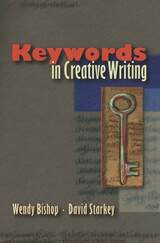
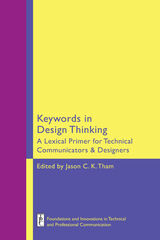
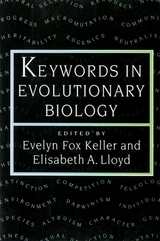
In science, more than elsewhere, a word is expected to mean what it says, nothing more, nothing less. But scientific discourse is neither different nor separable from ordinary language—meanings are multiple, ambiguities ubiquitous. Keywords in Evolutionary Biology grapples with this problem in a field especially prone to the confusion engendered by semantic imprecision.
Written by historians, philosophers, and biologists—including, among others, Stephen Jay Gould, Diane Paul, John Beatty, Robert Richards, Richard Lewontin, David Sloan Wilson, Peter Bowler, and Richard Dawkins—these essays identify and explicate those terms in evolutionary biology which, though commonly used, are plagues by multiple concurrent and historically varying meanings. By clarifying these terms in their many guises, the editors Evelyn Fox Keller and Elisabeth Lloyd hope to focus attention on major scholarly problems in the field—problems sometimes obscured, sometimes reveals, and sometimes even created by the use of such equivocal words. “Competition,” “adaptation,” and “fitness,” for instance, are among the terms whose multiple meaning have led to more than merely semantic debates in evolutionary biology.
Exploring the complexity of keywords and clarifying their role in prominent issues in the field, this book will prove invaluable to scientists and philosophers trying to come to terms with evolutionary theory; it will also serve as a useful guide to future research into the way in which scientific language works.
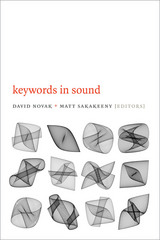
Contributors. Andrew Eisenberg, Veit Erlmann, Patrick Feaster, Steven Feld, Daniel Fisher, Stefan Helmreich, Charles Hirschkind, Deborah Kapchan, Mara Mills, John Mowitt, David Novak, Ana Maria Ochoa Gautier, Thomas Porcello, Tom Rice, Tara Rodgers, Matt Sakakeeny, David Samuels, Mark M. Smith, Benjamin Steege, Jonathan Sterne, Amanda Weidman
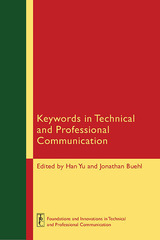
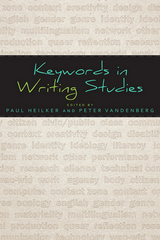
Keywords in Writing Studies is an exploration of the principal ideas and ideals of an emerging academic field as they are constituted by its specialized vocabulary. A sequel to the 1996 work Keywords in Composition Studies, this new volume traces the evolution of the field’s lexicon, taking into account the wide variety of theoretical, educational, professional, and institutional developments that have redefined it over the past two decades.
Contributors address the development, transformation, and interconnections among thirty-six of the most critical terms that make up writing studies. Looking beyond basic definitions or explanations, they explore the multiple layers of meaning within the terms that writing scholars currently use, exchange, and question. Each term featured is a part of the general disciplinary parlance, and each is a highly contested focal point of significant debates about matters of power, identity, and values. Each essay begins with the assumption that its central term is important precisely because its meaning is open and multiplex.
Keywords in Writing Studies reveals how the key concepts in the field are used and even challenged, rather than advocating particular usages and the particular vision of the field that they imply. The volume will be of great interest to both graduate students and established scholars.
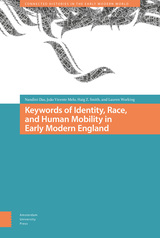
READERS
Browse our collection.
PUBLISHERS
See BiblioVault's publisher services.
STUDENT SERVICES
Files for college accessibility offices.
UChicago Accessibility Resources
home | accessibility | search | about | contact us
BiblioVault ® 2001 - 2025
The University of Chicago Press


